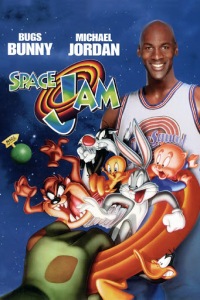Once is a bittersweet romantic story between two musicians in Dublin. I really like that it feels genuine and has an unambitious story with music that gives me the shivers. There is not much else to say than this is a simply wonderful film that I thoroughly enjoyed. You need to watch it too.
Mike’s verdict:
Nothing bad happens in this movie.
Such a blunt declaration in a review would normally be decried as spoiling some mystery or diffusing tension before it can build – but in this case nothing is spoiled. Once is fantastic because nothing bad happens, and the audience deserves to know it ahead of time.
At its base, the film is an uncomplicated story about two people whose lives have intersected at precisely the right time for them to help each. It’s Ireland’s Lost in Translation.
A nameless man is approached on the street by a nameless woman, and they connect through music. Their relationship is neither Hallmark’s immediate-love, nor Hollywood’s immediate-hate/eventual-love. Instead their connection grows with an organic realism that exposes the subtleness of life. The characters are flawed, sometimes unsure of themselves, and ultimately make decisions they regret. But they are also self-reflective and forgiving. At times they over-react, but still manage to refrain from digging in behind their own stubbornness. They are individually complicated, and yet they recognize that everyone else is too. They come across as actual people rather than the symbolic archetypes that films often portray.
The film is truly engaging from start to finish, with a consistently unpredictable plot that acts as an opportunity to observe as the two lead characters learn about each other and realize their own motivations. And it is made all the more enjoyable by the backdrop of a tremendously moving soundtrack. The music is integral to the plot and has a presence that pulls the film close to the line of “musical”, but without upstaging the characters themselves. The story is not an excuse to showcase the music, rather the music is a narrative tool that helps progress the story.
There is also a delightful band of secondary characters who are clearly not the focus of the story but are important nonetheless; and all have the kind of depth that suggests additional stories to learn about, if only we had more time. An origin story for the ragtag backing band, or 24 hours with the unwitting music producer could make engaging films in their own right.
The whole supporting cast is refreshingly positive – plenty of stories would makes use of the father, the mother, the bros next door, and certainly the estranged husband, to add melodrama. But Once is free from the hurt and sadness that often characterizes compelling storytelling, and flatly rejects the tradition of devising increasingly complex ways to depict human trauma. Nobody is unrealistically insecure, everybody is encouraging, everyone is good in the way we all want people to be good.
But who expects a dramatic film in which nothing bad happens? I wish that someone had told me ahead of time that nothing bad was going to happen, because I am clearly too pessimistic to accept that a film can tell a compelling story without resorting to trauma for the characters. I spent the entire movie in anxious anticipation of the bad thing I was sure was about to happen. Bad things always happen when people are having a nice time.
But Once doesn’t need to invent tension just to get its point across – it simply presents situations. And if the viewer’s own expectations build unnecessary tension, then so be it. This is just nice movie about normally complicated people living normally complicated lives.
And it’s wonderful.
Nothing bad happens.
Just enjoy the story.
9.5/10











